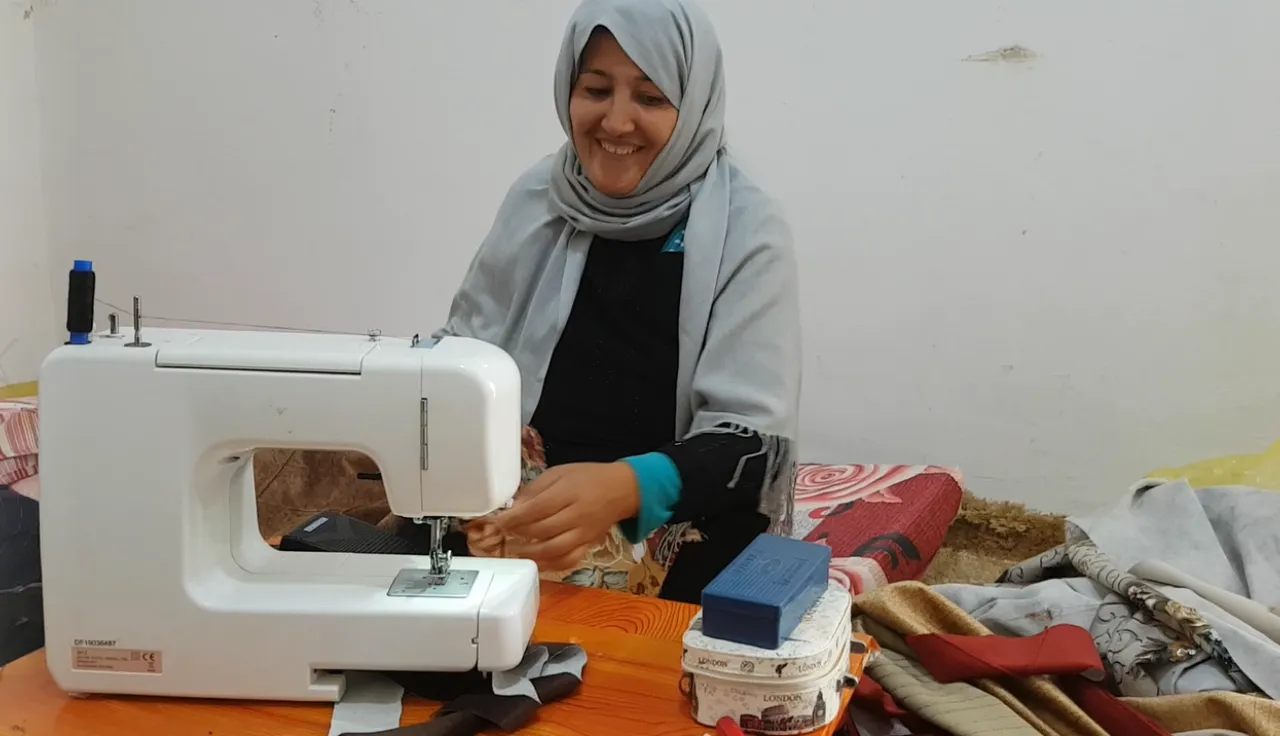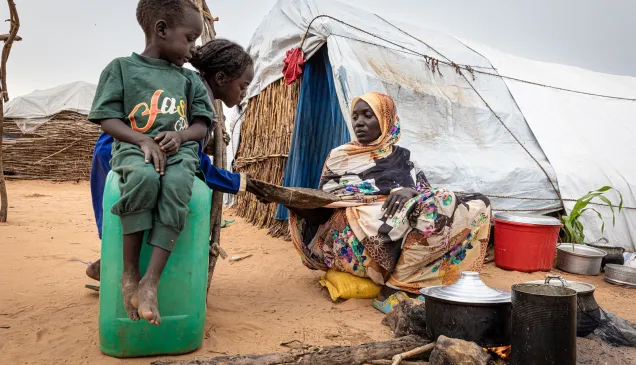Libya: COVID-19 erodes livelihoods already hard-hit by war

“We didn’t expect this coming. I wake up every morning, having no idea how we will survive the day.”
Four years ago, Zainab’s home burned down amidst fighting in western Libya. She and her family fled, and for years moved to multiple locations in Libya, and just as they started to feel settled once more, COVID-19 came, plunging their survival once again into jeopardy.
“At the beginning of this year, I started to believe that life finally smiled at both of us, me and my husband. Unfortunately, two months later, all this happiness vanished again,” she said. “The shop owner, where my husband worked, closed his business and went to fight on the frontlines. The hospital where I worked as a receptionist decided to lay off some employees – including me – to reduce expenses due to COVID-19.”
Today, Zainab and her husband have been jobless for almost two months. They can’t pay rent and can only afford the very basic essentials.
“We’re trying to manage daily expenses with whatever means we have,” Zainab said. “My husband goes out every day to find daily work with whatever wages he can get, and some neighbors are very kind to us. They try to help us as much as possible.”
In Libya, COVID-19 comes on top of years of conflict in which families have seen their public services interrupted and job opportunities vanish. More people are losing their livelihoods and income, and employees are often not receiving wages for months.
In May, 85 per cent of people interviewed by the ICRC reported that they had no savings to cope with the crisis, while 52 per cent said that their livelihoods have suffered because of COVID-19, resulting in reduced income.
In remote areas such as southern Libya, the consequences are stark. With a recent spike in the number of reported COVID-19 cases, the city of Sabha went under lockdown, adding to the strict measures already in place, which is making it extremely difficult for daily wage earners and small business owners.
In Ghat, further to the south, many small businesses had to close, and employees were laid off. Ramadan Baba Amr runs a small computer training center which also offers services like scanning and printing. He fears if the shutdown lasts longer, he will have to let people go.
“I had to cancel all contracts with teachers, and if the lockdown continues a little bit longer, I`ll have to lay off employees,” he said. “So far, we are able to support our 12 staff members and their families from January and February savings, but we won’t be able to do so next month.”
Restrictions such as curfews and border closures, while important in curbing the spread of the disease, are driving prices of staple foods and other essentials up and threatening people’s lives, livelihoods and food security.
In April, according to a market survey, prices of staple food increased by around 20 percent, and prices of some commodities such as flour more than doubled in some areas. Prices of milk, eggs, vegetables and bread also went up as supplies dwindled. Hand sanitizers, latex gloves, and products that help stop the spread of COVID-19 are all reported to be in short supply. In remote areas, commodities can be hard altogether to come by due to restrictions of movement in the country.
The ICRC is working to reduce the economic impact of COVID-19 on vulnerable families and ensure people have access to food and other necessities.
In Tripoli, the ICRC worked with a local company to launch a door-to-door delivery service of food and hygiene items to 230 families displaced by fighting who now are living in shared housing known as collective centres. This helps to ensure that people have what they need day-to-day, while minimizing exposure to the virus.
Similarly, In Sabha, the ICRC and the Libyan Red Crescent distributed food parcels and hygiene kits to families in home quarantine, many of whom are struggling with make ends meet with the breadwinners hospitalized with COVID-19.
The ICRC is also helping small businesses stay afloat. Before COVID-19, ICRC provided financial grants to people impacted by conflict to run small businesses. Many of these businesses were disrupted as activity ground to a halt because of COVID-19, so the ICRC offered additional cash grants to help keep them open. Nargis is among 200 people to receive the additional small cash grant. “I was planning to expand my project through buying a larger sewing machine,” she said. “When COVID-19 arrived, I lost income, and had to spend the savings I spared to buy the machine to cover Ramadan’s expenses.”
Narjes started a small sewing project with an ICRC grant.
When COVID-19 arrived, her business came to a halt.
Now ICRC offered additional cash grant to help Narjes keeps her dreams alive pic.twitter.com/PxrhwbsgpM— ICRC Libya (@ICRC_lby) June 10, 2020
While the economic impact of COVID-19 in Libya appears likely to worsen over time, Zainab hopes that at last she or her husband get back to work so that they can afford basic needs for their two children.
“When I think of my children, my heart aches,” she said. “They’re very young and I’m not sure they realize how bad the situation is. When they ask for something that we can’t afford, they don’t complain.”



